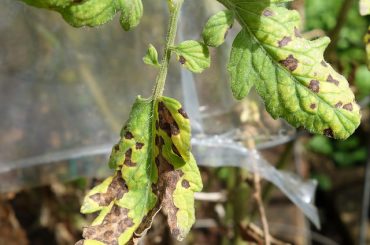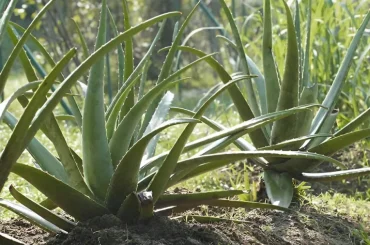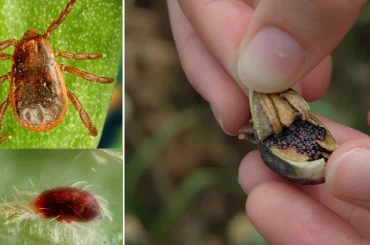Do Rabbits eat Tomato Plants? – How to keep Rabbits out of your Garden?
Rabbits are natural herbivores and as the case would be, they have a special love for tomatoes among other vegetables/fruit. You think they look so cute and innocent while nibbling on that leaf, until this seemingly inoffensive behaviour has turned into a garden nightmare with your flourishing pot plant wantonly stripped to what resembles dusty green bones. I learned from experience when my overly-catered garden met the round end of a rabbit. It broke my heart to see some little creatures eating one day after another the leaves and fruits of my tomatoes.
Strategies to Protect Your Garden
I tried all different ways to keep these adorable villains off of my catalog. Which is why setting up barriers and using natural deterrents worked. This included embedding Senecio wax ivy plants that helped our garden to flourish and reliably serving as a physical obtrusive for any open space rabbit intrusion. These are some preventive measures by which I managed to protect my tomato plants.
Personal Experience and Insights
Through my toils, I figured the key was probably knowing how rabbits work. Although they are persistent, taking the right steps – such as fixing fences and removing hiding areas – can have a major impact. My experience taught me that vigilance (and vegetation “weeding”) is key. There are challenges every season, but that moment when you harvest your very own tomatoes certainly makes it all worthwhile.
Rabbits Eat Tomato Plants

Because as much love that us gardeners have for our tomato plants, rabbits are also some of the biggest fans out there and will usually end up munching down your tomatoes in a hurry whether they be wild or specially bred. This carries over to companion rabbits, as well: this are the many reasons why some owners feel okay giving their pet bunnies tomatoes now and then… in small amounts. The charms of both fully grown tomatoes and also the green ones make them a lot more eye-catching to these creatures.
Impact on Gardens and Plants
Rabbits eating tomato plants typically do extensive damage, most often focusing on newer and younger vegetables that have yet to fully mature. Although being a member of the nightshade family and including tomatine; soluble oxalates, it is however poisonous for rabbits due to this sweet flavor they continue eating.- Anything with gumption: Hannah Turnbull Troublesome for gardeners wishing to safeguard their plant life.
Only by taking preventive measures can you protect tomato plants and other vegetation. They can do it by putting up fences, natural deterrents and keeping a clean garden repellent to the animals i.e. rabbits or chickes/ducks etc Knowing the behaviour and dietary requirements of rabbits can assist in creating solutions to reduce ruining your beautiful flower garden.
Eating Tomatoes Poisonous to Rabbits?

Rabbits like to eat tomatoes, various fruits and vegetables, but certain parts of the tomato plant can be toxic for them. The glycoalkaloids like solanine present in tomato leaves and stalks are toxic to you – they can cause gastrointestinal symptoms, such as liver pain. Although a bite or two of these plants should not harm rabbit, eating them continuously throughout the season can aggravate these risks.
Signs Showing Rabbits Are Eating Tomatoes
If you’re wondering if rabbits have been dining on your tomatoes, look for telltale signs in the garden. Keep an eye out for tiny holes and evidence of digging near tomatoes (rabbits may be the culprits). Another way of identifying the presence of rabbits is by finding small ¼ inch to one-half-inch long pellets near plants. But unlike other animals, rabbits are very thoughtful when it comes to eating and may not chew on the leaves, another sign that there are no traces of them.
Maintain Cleanliness in Your Garden
Which means it is more important than ever you keep your garden looking tidy and regularly maintained because tomatoes can attract rabbits which will come from far away to feed. May go for dense plants that are overgrown, which is a great place to hide and hard for you to see them;, As weeds and long grass create the perfect harborage areas for these animals, you indirectly prevent them from setting up bases in your garden.
Using Raised Beds to Deter Rabbits
A good way to keep rabbits away from your tomato plants is using raised beds. The height of these beds should be high, ideally no shorter than 24 inches (2 feet) so that the rabbits have a hard time trying to jump over and reaching your precious tomatoes. That height leaves the easily frightened rabbits at risk, so they might not chance hopping into your garden.
Motion Sprinkles

When it comes to protecting your precious tomato parenthoods from rabbit attacks out there, motion sprinklers can add a unique component towards what you have. They use these as a form of rabbit security system and place them to sense the presence, then when detecting an animal they set off with sudden spray forcing back any visitor. This successful tactic safeguards your plants but also conditions the bunnies as they learn to associate your garden with an unpleasant surprise.

It is a straightforward idea that works wonders; when it detects movement in the area of effect, this motion-activated sprinkler blasts water. So having been sprayed unexpectedly when they came in contact with this the rabbit learns to stay away from your garden and a perfect deterrent for any future intruders. But the key is to put these sprinkles in just the right places – spots where rabbits are likely entering or feeding.
Humane catches
Combatting rabbits eating your tomato plants involves humane means such as that of traps which will catch them unharmed. This can mean dangerous traps, baited with delicious food, sit in areas that rabbits like to hang out. The traps close with a soft thud after taking the rabbit in; you can then move them to another place without any injuries. Local regulations should be consulted prior to trapping and release. This way, you will not only save those little tomatoes but also share a similar ground with natural wildlife which cultivates conservation along with gardening.
FAQs
Safe Plants Only Tomatoes for Rabbits
Risks of tomatoes for rabbits
The fruit of a tomato is not considered poisonous, however large amounts of leaves or unripe tomatoes can cause problems.
How to stop bunnies from eating plants?
Repel them. How do Rabbit Repellents Work? Sprays are made with specific ingredients that release a bad smell for rabbits such as dried blood or garlic oil, along with making your plants taste disgusting to them like hot pepper and/or dried blood sprays.
What smell do rabbits hate?
There is no such thing as rabbit-proof plants, but scents like basil mint rhubarb hot peppers spicy thyme and garlic.
Can rabbits eat mango?
Washed of course (I also remove the skin, but it is not necessary to peel mango before offering a slice).





